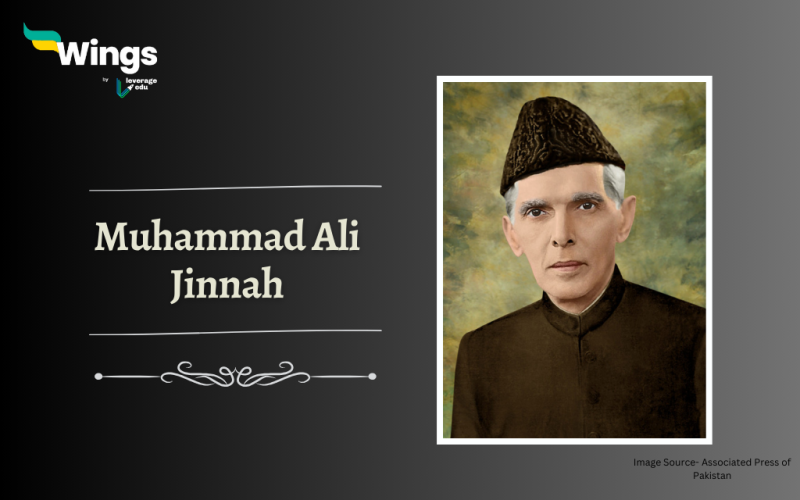Muhammad Ali Jinnah, a towering figure in the history of South Asia, played a pivotal role in the creation of Pakistan, the world’s first Muslim-majority nation. From his early life, legal career, and entry into politics, to his tireless efforts to secure the rights of Muslims in British India, Jinnah’s journey culminated in the birth of Pakistan in 1947. This blog explores the life and contributions of Muhammad Ali Jinnah.
Table of Contents
Early Life and Education
Jinnah was born on either October 20, 1875 or December 25, 1876, into a prosperous Khoja family in Karachi. His family followed the Aga Khan, a sect of Islam, and were originally Hindus who had converted to Islam centuries earlier.
After early education at home, Jinnah attended the Sind Madrasat al-Islam and later the Christian Missionary Society High School in Karachi. At 16, he passed the matriculation examination of the University of Bombay. He then pursued legal studies in England, joining Lincoln’s Inn and being called to the bar in 1895.

Early Career and Personal Challenges
Upon returning to India, Jinnah faced financial difficulties due to his family’s losses. He worked diligently to establish his legal career in Bombay.
Jinnah faced personal tragedies with the deaths of his wife and mother while he was in London. Despite these setbacks, he completed his studies and developed a keen interest in British politics and Indian affairs.
Entry into Politics
In 1906, Jinnah participated in the Indian National Congress session in Calcutta. His early political career was marked by efforts to promote Hindu-Muslim unity and cooperation. In 1910, he was elected to the Imperial Legislative Council, marking the beginning of his long and distinguished parliamentary career.
Also Read – Jawaharlal Nehru: Secular Architect of Modern India
Champion of Hindu-Muslim Unity
Jinnah greatly admired the liberalism of British Prime Minister William E. Gladstone. He was influenced by Gopal Krishna Gokhale, a prominent Maratha leader and Indian nationalist.
Concerned about the protection of Muslim interests, Jinnah initially stayed aloof from the All-India Muslim League, founded in 1906. However, in 1913, he joined the league when assured of its commitment to Indian political emancipation.
Political Unity and Lucknow Pact
Jinnah played a pivotal role in facilitating joint sessions between the Congress Party and the Muslim League to promote mutual consultation and participation.
Lucknow Pact: In 1916, the Lucknow Pact was concluded, and the two organizations put forth a scheme of constitutional reform as their joint demand to the British government. Separate electorates were a key concession obtained by Muslims.

Challenges and Withdrawal
The emergence of Mahatma Gandhi and his noncooperation movement posed challenges to Jinnah’s political ideology. He withdrew from both the Congress and the Muslim League in 1920.
Jinnah sought to bridge the gap between Hindus and Muslims through constitutional methods and cooperation. His “14 points” proposed reforms and greater rights for minorities.
Return to Leadership
Jinnah spent five years in London, focusing on legal practice before the Privy Council, but was later persuaded to return to India in the face of impending constitutional changes.
The 1937 elections marked a turning point as Congress won an absolute majority in several provinces. Congress’s refusal to include the Muslim League in provincial governments strained relations between Hindus and Muslims.
Also Read – Sardar Vallabhbhai Patel: Biography, Facts (Bonus Quiz!)
Creator of Pakistan
Initially skeptical about Pakistan, Jinnah became convinced that a separate Muslim homeland was essential to safeguard Muslim interests and culture.
In 1940, the Muslim League adopted the Lahore Resolution, calling for the creation of Pakistan. This idea captured the imagination of Muslims.
Relevant Blogs
| Widow Remarriage Act | Ishwar Chandra Vidyasagar |
| Indira Gandhi | Swaraj Party |
| Peasant Movements | Kiran Bedi |
| Prarthana Samaj | Arya Samaj |
| Bengal Partition | Birsa Munda |
That’s all about Muhammad Ali Jinnah. If you want to read more articles like this, you can get Study notes on the Modern History of India here. Also, you can visit our general knowledge page on Indian History!
 One app for all your study abroad needs
One app for all your study abroad needs













